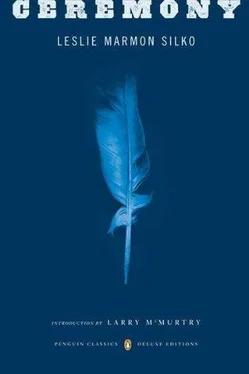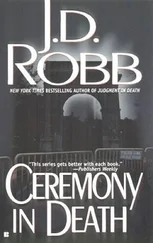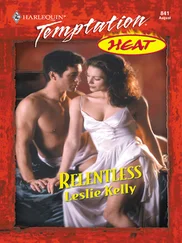She sat back down on the bed beside him and wiped the shoes on the hem of the blue dress before she wrapped them up again and put them back in the trunk. “They called me the Night Swan,” she said. “I remember every time I have danced.”
If she had not been so young, she would have realized that he was nothing, that the power she was feeling had always been inside her, growing, pushing to the surface, only its season coinciding with her new lover. But she was young and she had never felt the power of the dance so strongly before, and she wanted to keep it; she wanted it with a great ferocity which she mistook for passion for this man. She was certain about him; he could not get enough of her. He would lie beside her under the blanket and his eyes would be fevered even after he was limp and incapable of taking any more from her. She kept him there for as long as she could, searching out the boundary, the end to the power of the feeling. She wanted to prowl those warm close places until she discovered the end because at that time she had not yet seen that the horizon was an illusion and the plains extended infinitely; and up until that final evening, she had found no limit.
She knew it before he spoke. His eyes were still feverish as he spoke and his fingers quivered like the legs of a dreaming dog; at that moment he wanted her more than he had ever wanted her. And it was for that she would not forgive him. She could have accepted it if he had told her that her light brown belly no longer excited him. She would have sensed it herself and told him to go. But he was quitting because his desire for her had uncovered something which had been hiding inside him, something with wings that could fly, escape the gravity of the Church, the town, his mother, his wife. So he wanted to kill it: to crush the skull into the feathers and snap the bones of the wings.
“Whore! Witch! Look at what you made me do to my family and my wife.”
“You came breathlessly,” she answered in a steady voice, “but you will always prefer the lie. You will repeat it to your wife; you will repeat it at confession. You damn your own soul better than I ever could.”
He grabbed her shoulders; his mouth was twisted open and the breath was hot and short; but it was his own body, not hers, which shook. Then his hands went limp and fell with their own weight from her shoulders.
“We will run you out of town,” he said. “People listen to me. I’m somebody in this town.”
That night she danced he was already a dead man, a living dead man who sucked life from the living, desiring and hating it even as he took it. The ecstasy he found in her had illuminated the dead tissues and outlined the hollow of his spirit. She danced, spinning her body, pulling her thighs and hips into tight sudden motions, bending, sweeping, veering, and lunging — whirling until she was the bull and at the same time the killer, holding out her full skirts like a cape.
The men sitting around tables at the edge of the dance floor pushed themselves away, some stumbling over chairs, spilling their beer in a panic that pounded in their chests like her heels against the floor. The bartender left a towel stuffed in the glass he had been wiping. But they watched; pressing close to one another, shivering in the farthest corner of the bar, they watched her; and when the guitar player finally laid his instrument on the floor and held his head between his hands, she danced on.
“I knew nothing of minutes or hours. There were changes I could feel; the boards of the dance floor began to flex and glisten. The creaking of the wood became a moan and a cry; my balance was precarious as if the floor were no longer level. And then I could feel something breaking under my feet, the heels of my dancing shoes sinking into something crushed dark until the balance and smoothness were restored once again to the dance floor.” She looked up at Josiah and pulled at a blue thread hanging from the sleeve of her dress.
“His wife came into the bar screaming. The damp cold of the snowstorm wind followed her through the door she had thrown open wide. Memory is strange. I don’t remember her face or her name, but I remember her feet. There was new snow on her bare feet where she had run from her house to the cantina; they were pale and small on the dark oiled-wood floor. I watched the snow melt into little streams between her toes while she accused me.”
She paused and rolled herself another thin cigarette. “There had been some kind of accident with his horses late that night,” she said as she lighted it, inhaling deep and shaking her head slowly. “His screaming woke her up. She ran into the snow like that — nightgown and bare feet — and found him in the corral. His own horses had trampled him. That was all.” Her hazel eyes were shining; she smiled at Josiah. “Who listens to the stories wives tell?” She squeezed his arm. “But all that was a long time ago — I don’t even remember how many years ago that happened in Las Cruces.” She poured him more beer in a thick pottery cup with yellow flowers painted around it. “I’m a grandmother now. My daughter in Los Angeles has two beautiful little daughters. And when I dance now, I dance for them.”
She moved closer to him on the bed. “One day I got up and walked down the main street of Socorro. The wind was blowing dust down the little side streets and I felt like I was the only one living there any more. The drought was drying out the land, stealing away the river, so that even the cottonwoods and tamarics along the banks were drying up. I had a feeling then — something inside me beginning to shrink thin and dry like old newspapers gone yellow in the bottom of a trunk. I rode the bus this far. I saw the mountain, and I liked the view from here.” She nodded in the direction of the mountain, Tse-pi’na, the woman veiled in clouds.
She shook her head slowly and emptied the last of the beer into her cup. “Old age,” she said, laughing, “the first sign of old age is all this talking when we could be doing something else. . ” She winked at him and Josiah pulled her close, promising himself he would never ask her what it was about the mountain that caused her to stop there.
At first the Cubero people were upset about the Night Swan’s choice of a retirement place. Lalo was sullen when anyone asked, and he said it was his wife who had rented her the rooms above the bar. He always added that they were old and dusty and no one else would live up there because the juke box played loud and drunks yelled and stomped up and down the long porch downstairs. Of course only that kind of woman, used to that kind of life, would tolerate such things.
After she moved in, people said the steps on the spiral staircase at the end of the porch were never dusty any more; but that was only rumor, and there were conflicting stories about where she got her money. But the facts remained: she was an old cantina dancer with eyes like a cat. The women watched the bright blue door on the second-story porch, and they imagined unspeakable scenes between the Night Swan and their husbands or sons. When Josiah started coming to see her, and his blue GMC truck was parked there every evening until midnight, the Cubero women relaxed. They could even laugh a little.
“She’s so old and wrinkled,” they whispered, “all worn out. Only some old Indian would want her anyway.” But still they watched every evening to make sure his truck was there, as if they knew the sensation in the groin of their husbands each time the men passed Lalo’s and saw the bright blue door.
“That’s what all the rumors say,” Auntie hissed at Tayo in the storeroom where she had cornered him. “I was the last one to know what my own brother has been doing. Why didn’t you tell me?”
“Because I didn’t know for sure.”
Читать дальше












